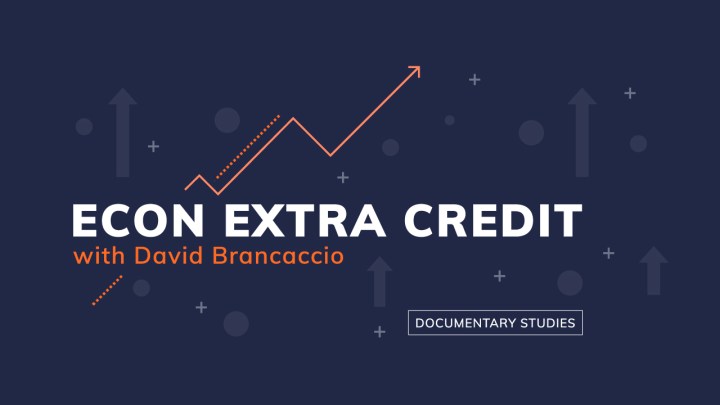
I do not own an old-school typewriter of the sort worshipped by this month’s documentary. I do own many of its retro-technology cousins. Peering over my shoulder now is a Graflex press camera from the 1940s, a Bell System rotary phone made of Bakelite (assigned to number 6-6485) and a Westinghouse AM radio, full of vacuum tubes, that I restored some years ago. None of these cost me much. All of them have a delightful heft and permanence that is missing from most of the other gizmos that plug in around me and which will soon get thrown on the pile at my county’s electronics recycling day.
I get it when the people in the movie talk of their passions for their old typewriters. We learn that actor Tom Hanks and playwright Sam Shepard both insist the act of writing should come with the clack, thump, ding and zip that a computer keyboard never gives you.
There is much to see when you view this film through an econ lens. The typewriter was a technology that brought many women into the workforce for the first time, as typists. “California Typewriter” also explores a tension present in many a small business: Are the genius craftsmen who fix and improvise spare parts for typewriters in a Berkeley, California, shop engaged in a labor of profit or a labor of love? We also learn that not everything has a price: A superfan from Toronto finally tracks down the elusive objects of his desire: Sholes & Glidden typewriters from the 1870s. The owner is unwilling to talk dollars, nor to part with even one.
I have to believe a key thread throughout the film resonates with the 2002 winner of the Nobel Memorial Prize in Economic Sciences. Daniel Kahneman later wrote a bestseller (“Thinking, Fast and Slow”) distinguishing fast, intuitive thinking with its also valuable twin: slow, deliberate thinking. Our film this month embraces the wonderful ability of the manual typewriter to slow down the typist to a more deliberate pace — down to, some say, the natural speed of thought. A visitor to the repair shop in the film compares this to the delights of the slow-food movement. Call it the slow-content-creation movement.
Typewriters weren’t permanent, with only a few exceptions beyond their nerd culture. I read that undertakers still sometimes use them in jurisdictions that require death certificates to be typed. A New Jersey company makes a see-through typewriter for incarcerated people denied computer privileges (they can’t be used to stash contraband).
Here is the irony: It’s the typewriter’s output that is enduring. The film points out that a typed page on paper may live a much longer life than the product of a word processor that may get locked into an obsolete hard drive or disappear under a forgotten password somewhere in cyberspace.
— David
“California Typewriter” is available with a library card or university login on Kanopy and for free (sometimes with ads) on a variety of streaming platforms. We’d love to know what you took away from the film. Send us your thoughts at extracredit@marketplace.org.
There’s a lot happening in the world. Through it all, Marketplace is here for you.
You rely on Marketplace to break down the world’s events and tell you how it affects you in a fact-based, approachable way. We rely on your financial support to keep making that possible.
Your donation today powers the independent journalism that you rely on. For just $5/month, you can help sustain Marketplace so we can keep reporting on the things that matter to you.












